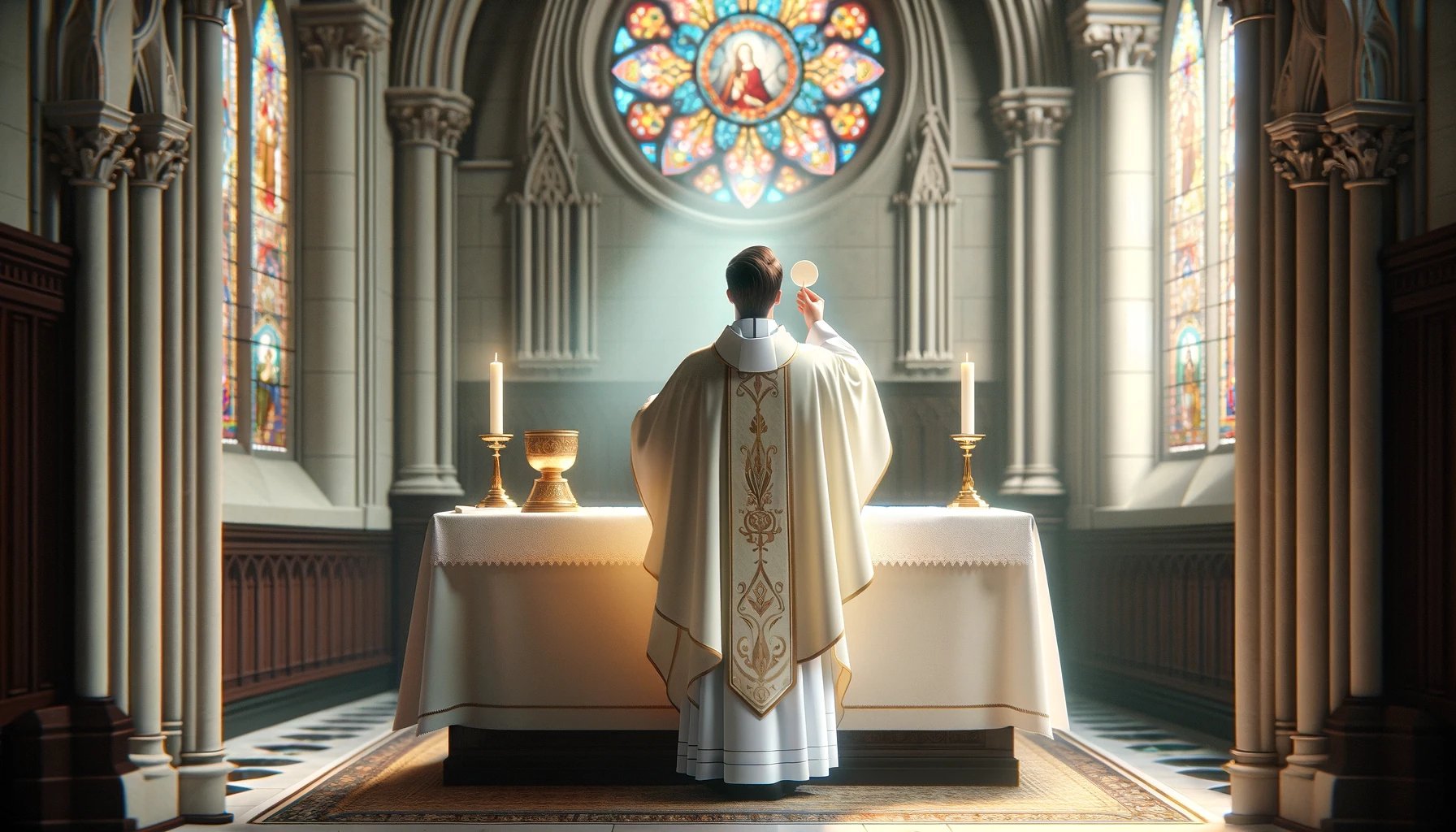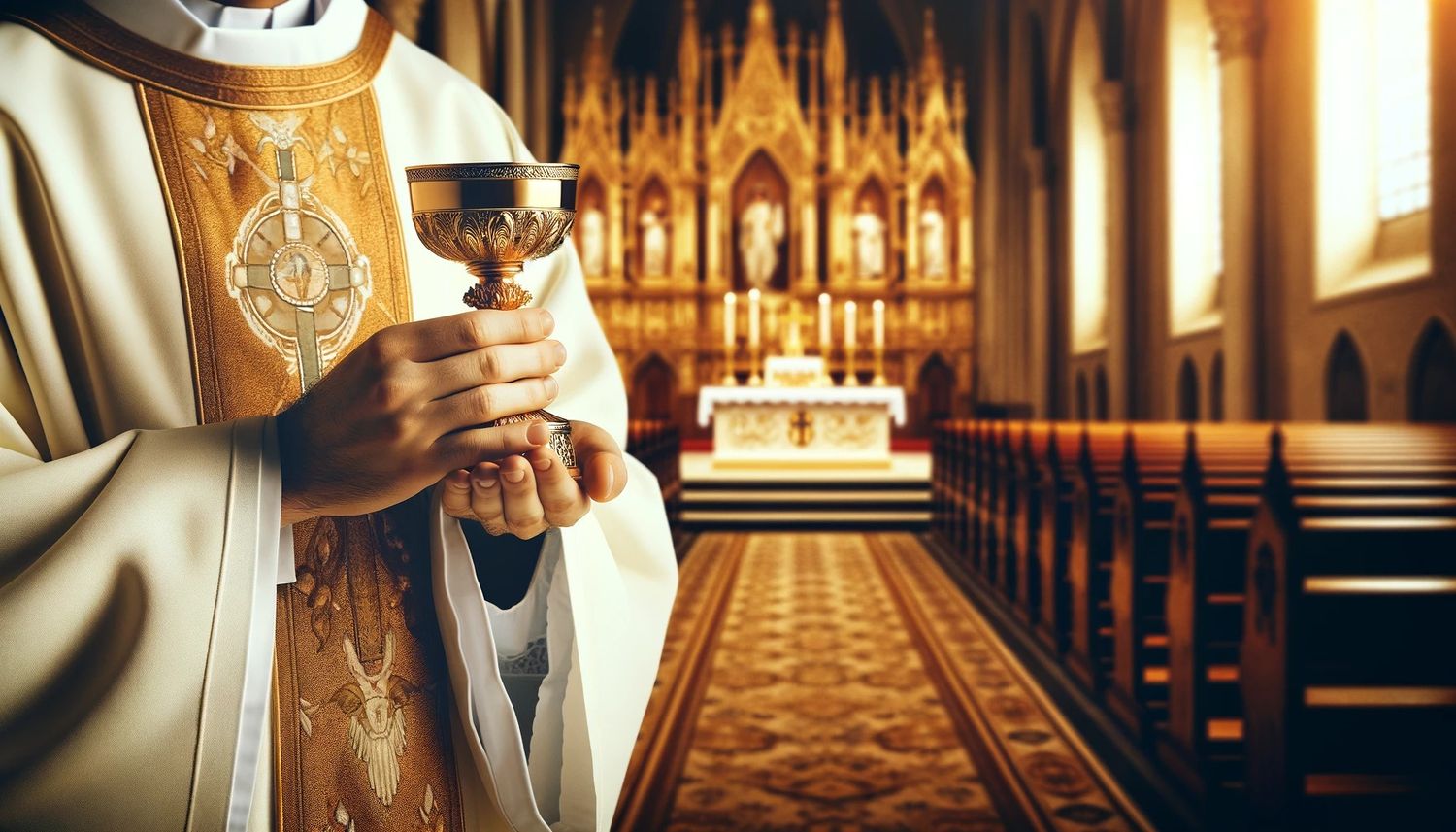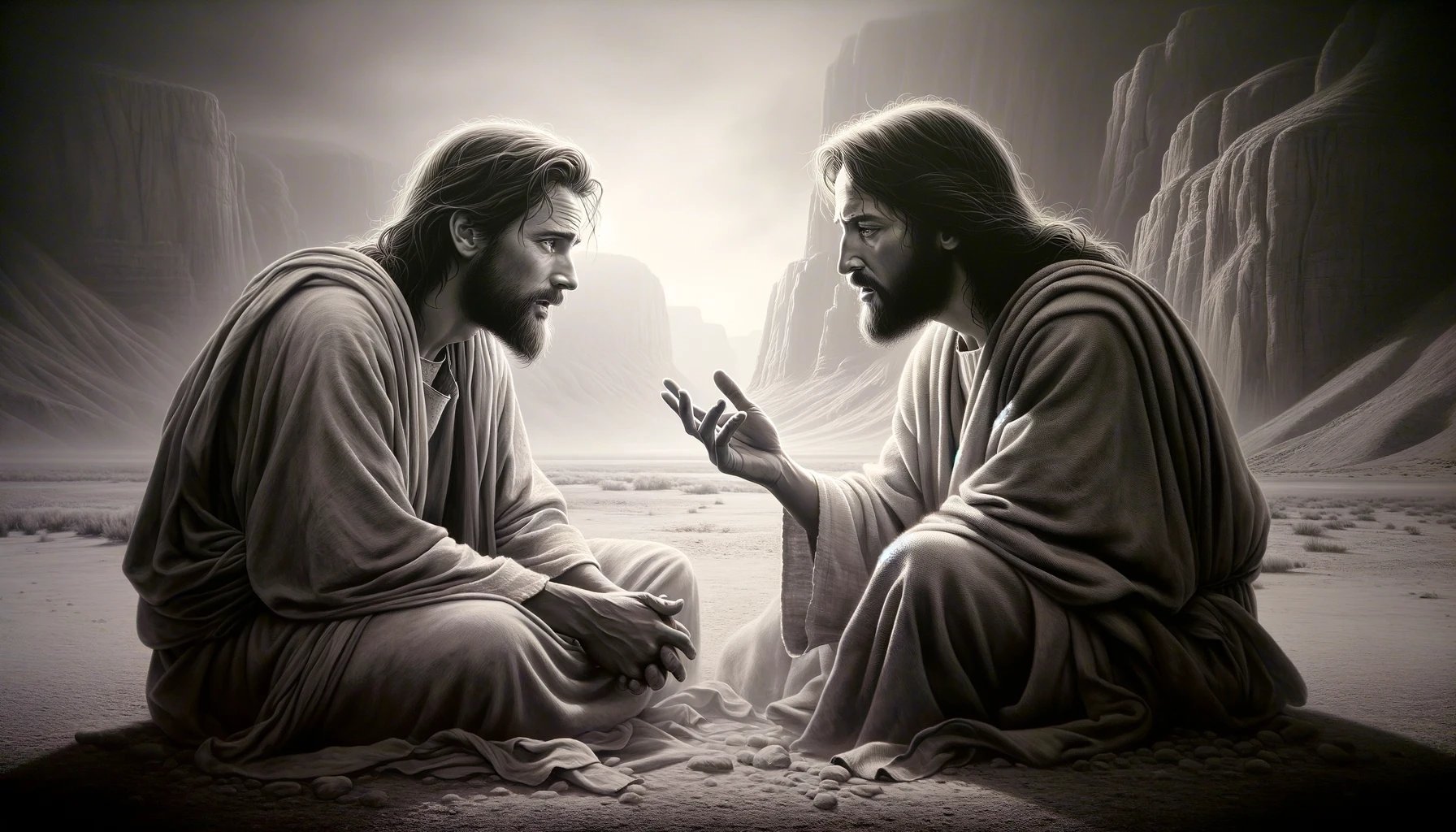Home>Theology and Spirituality>What Does Martin Luther Say About Communion


Theology and Spirituality
What Does Martin Luther Say About Communion
Published: February 25, 2024
Ericka Andersen, an editor at Christian.net, expertly merges digital strategy with content creation, focusing on faith and societal issues. Her communication skills enhance the platform's engaging narratives, fostering meaningful dialogue on belief's impact on society.
Discover Martin Luther's views on Communion and its significance in theology and spirituality. Explore his insights and teachings on this important aspect of Christian faith.
(Many of the links in this article redirect to a specific reviewed product. Your purchase of these products through affiliate links helps to generate commission for Christian.net, at no extra cost. Learn more)
Table of Contents
Introduction
Martin Luther, a prominent figure in the Protestant Reformation, made significant contributions to Christian theology and spirituality. His views on communion, also known as the Eucharist or the Lord's Supper, continue to influence the beliefs and practices of many Christians today. Understanding Luther's perspective on communion provides valuable insights into the rich tapestry of Christian traditions and the spiritual significance of this sacred sacrament.
Luther's profound impact on the understanding of communion stems from his commitment to reforming the church and returning to the foundational teachings of the Bible. His theological insights and passionate advocacy for a personal relationship with God have left an indelible mark on Christian thought and practice. As we delve into Luther's views on communion, we embark on a journey to explore the spiritual depth and theological nuances that underpin this central aspect of Christian worship and faith.
Martin Luther's Views on Communion
Martin Luther's views on communion are deeply rooted in his theological convictions and personal experiences. Central to his understanding of communion is the concept of "real presence," which asserts that Christ is truly present in the bread and wine of the Eucharist. Luther vehemently opposed the prevailing belief of transubstantiation, which held that the bread and wine physically transformed into the body and blood of Christ during the sacrament. Instead, he proposed the doctrine of consubstantiation, suggesting that Christ's presence coexists with the elements of bread and wine.
Luther's perspective on communion was shaped by his commitment to sola scriptura, the belief that the Bible is the ultimate authority in matters of faith and practice. In his seminal work "The Babylonian Captivity of the Church," Luther emphasized the importance of adhering to the words of institution spoken by Jesus at the Last Supper. He maintained that the true essence of communion lay in the spiritual nourishment and sustenance it provided to believers, rather than in any mystical transformation of the elements.
Furthermore, Luther underscored the communal aspect of the Eucharist, emphasizing its significance as a means of grace and a unifying force within the Christian community. He believed that through partaking in the Lord's Supper, believers experienced a profound spiritual communion with Christ and with one another. This communal dimension of communion reflected Luther's emphasis on the priesthood of all believers and the interconnectedness of the body of Christ.
Luther's views on communion also reflected his concern for the spiritual well-being of the individual believer. He saw the Eucharist as a source of comfort and assurance, a tangible reminder of God's grace and forgiveness. For Luther, communion was a powerful expression of God's love and a means through which believers could encounter Christ in a deeply personal and transformative way.
In summary, Martin Luther's views on communion revolved around the concepts of real presence, sola scriptura, communal participation, and personal spiritual nourishment. His profound insights continue to shape the understanding and practice of communion within Lutheranism and have left an enduring legacy in the broader Christian tradition.
The Importance of Communion in Lutheranism
In Lutheranism, communion holds profound significance as a central sacrament that embodies the spiritual nourishment and unity of believers. Rooted in Martin Luther's theological insights, the importance of communion in Lutheranism extends beyond a mere ritualistic practice to encompass the essence of Christian faith and community.
At the heart of Lutheranism lies the belief in the real presence of Christ in the Eucharist. This foundational doctrine underscores the profound spiritual reality that unfolds during communion, as Lutherans affirm the tangible presence of Christ in the bread and wine. This belief fosters a deep sense of reverence and awe, as the act of partaking in communion becomes a sacred encounter with the living Christ.
Furthermore, communion in Lutheranism serves as a powerful expression of God's grace and forgiveness. Through the reception of the bread and wine, believers are reminded of the redemptive work of Christ and the unmerited nature of God's love. This profound symbolism of grace permeates the Lutheran understanding of communion, offering solace and assurance to those who partake in this sacred sacrament.
Moreover, the communal aspect of communion is integral to Lutheranism, emphasizing the unity of the body of Christ. As believers gather around the table to receive the Eucharist, they participate in a tangible expression of their interconnectedness as members of the Christian community. This communal participation underscores the priesthood of all believers and reinforces the bonds of fellowship and mutual support within the church.
In Lutheranism, communion also serves as a means of spiritual sustenance and renewal. The act of partaking in the Eucharist is viewed as a source of strength and nourishment for the journey of faith. Through the reception of the bread and wine, believers are spiritually nourished and empowered to live out their vocation as disciples of Christ in the world.
In summary, the importance of communion in Lutheranism encompasses the real presence of Christ, the expression of God's grace, communal unity, and spiritual nourishment. This sacrament stands as a profound symbol of the Christian faith, embodying the core tenets of Lutheran theology and spirituality.
The Role of Communion in the Christian Faith
The role of communion in the Christian faith transcends mere symbolism or ritualistic observance; it embodies the profound spiritual reality of Christ's presence and the transformative power of God's grace. At the core of Christian belief, communion, also known as the Eucharist or the Lord's Supper, holds multifaceted significance that resonates deeply with the spiritual journey of believers.
First and foremost, communion serves as a tangible expression of the central Christian narrative—the sacrificial death and redemptive resurrection of Jesus Christ. As believers partake in the bread and wine, they are reminded of Christ's selfless act of love, his broken body, and shed blood, which form the foundation of Christian faith. This sacred remembrance fosters a deep sense of gratitude and reverence, grounding believers in the unyielding truth of God's redemptive work through Christ.
Furthermore, communion embodies the concept of spiritual nourishment and sustenance. As believers receive the elements, they partake in a profound encounter with the living Christ, experiencing a spiritual communion that transcends the physical realm. This act of partaking in the Eucharist symbolizes the intimate union between the believer and Christ, offering spiritual nourishment, strength, and renewal for the journey of faith.
Moreover, communion fosters a sense of communal unity and fellowship within the body of Christ. As believers gather around the table to partake in the Eucharist, they affirm their interconnectedness as members of the Christian community. This communal participation underscores the shared identity and mission of the church, emphasizing the priesthood of all believers and the call to mutual love and support within the body of Christ.
Additionally, communion serves as a powerful expression of God's grace and forgiveness. Through the reception of the bread and wine, believers are reminded of the unmerited nature of God's love and the redemptive grace extended to humanity through Christ's sacrifice. This profound symbolism of grace permeates the act of communion, offering solace, assurance, and spiritual healing to those who partake in this sacred sacrament.
In essence, the role of communion in the Christian faith encompasses the remembrance of Christ's sacrifice, spiritual nourishment, communal unity, and the expression of God's grace. This sacred sacrament stands as a poignant embodiment of the core tenets of Christian belief, serving as a source of spiritual strength, communal solidarity, and profound encounter with the living Christ for believers across denominations and traditions.
Conclusion
In conclusion, Martin Luther's profound insights into communion have left an indelible mark on Christian theology and spirituality. His emphasis on the real presence of Christ, communal participation, and the spiritual nourishment provided through the Eucharist continues to shape the understanding and practice of communion within Lutheranism and the broader Christian tradition. The importance of communion in Lutheranism extends beyond a mere ritualistic practice to encompass the essence of Christian faith and community. It serves as a powerful expression of God's grace, a tangible reminder of Christ's sacrificial love, and a source of spiritual nourishment and renewal for believers.
Furthermore, the role of communion in the Christian faith transcends mere symbolism, embodying the profound spiritual reality of Christ's presence and the transformative power of God's grace. It serves as a poignant embodiment of the core tenets of Christian belief, offering spiritual strength, communal solidarity, and a profound encounter with the living Christ for believers across denominations and traditions.
As we reflect on Martin Luther's views on communion and its significance in the Christian faith, we are reminded of the rich tapestry of Christian traditions and the spiritual depth inherent in this sacred sacrament. Communion stands as a timeless symbol of Christ's redemptive work, a communal expression of faith and unity, and a source of profound spiritual nourishment for believers on their journey of faith.
In essence, the legacy of Martin Luther's teachings on communion continues to inspire and enrich the spiritual lives of countless individuals, inviting believers to partake in the sacred mystery of the Eucharist with reverence, gratitude, and a deep sense of communal unity. As we embrace the profound significance of communion in the Christian faith, we are drawn into a deeper understanding of God's enduring love, the transformative power of grace, and the unifying bond that transcends time and space within the body of Christ.















